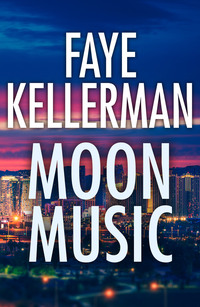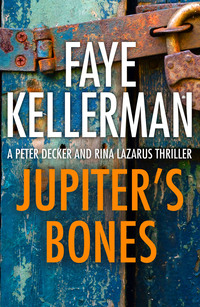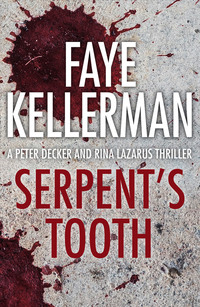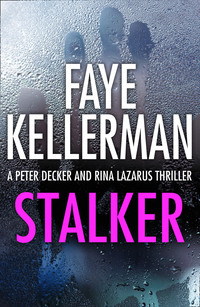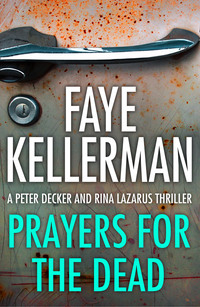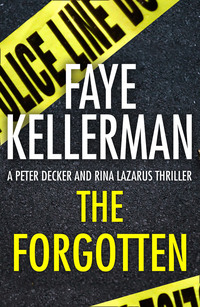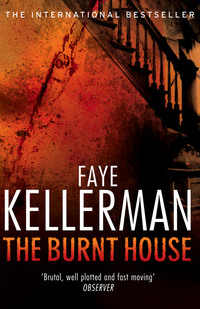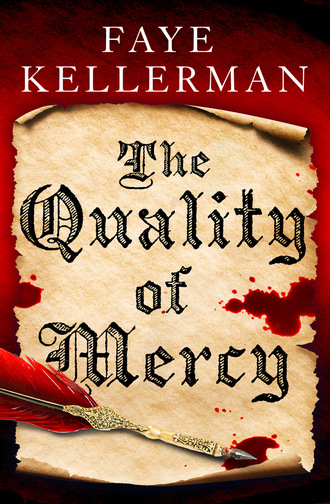
Полная версия
The Quality of Mercy
Had that been part of Lopez’s plan to do him in? Had Lopez only rescued him because he had known about the doctor’s mission? Had Lopez been afraid that he—de Andrada—would be of loose lips?
He thought a moment.
No, de Andrada thought, decidedly not. Lopez had been a true healer back then—kind and true-hearted. It was Lopez who’d secured his release from prison. The doctor had taken him into his own home, fed him fresh meats, clothed him in vestments that didn’t itch. Had Roderigo not intervened in his behalf, he would have been behalved.
But curse Lopez now. He had dealt deceptively with his faithful servant—Manuel de Andrada—just like the rest. Though Lopez professed that he was a guest in his house, without any funds, de Andrada was completely at Lopez’s mercy. Aye, the doctor had turned into a witch doctor. Roderigo Lopez had beguiled him, forced him to act as a go-between with the King of Spain, inveigled him into his Jew-saving intrigues. And now, after months of dedicated work, de Andrada was being discarded, tossed out the window like shit in a chamberpot.
He sighed. In his life he’d been employed by so many, turned traitor to so many. It was hard to keep them all sorted.
How would the doctor arrange the death—his death? An accidental fall from a horse? Did not the groom look at him with naughty eyes? When had that been? A week ago? Two weeks? Aye, when Saturn had been in Pisces, the sun sign of his birth. A bad omen!
He rolled over onto his back and groaned.
Poison perhaps? Aye, poison was a favorite pastime of the physician to the Queen. De Andrada remembered too clearly Lopez’s verbal offer to poison Don Antonio. Aye, Lopez denied it to the world, and nothing in writing could prove otherwise, but de Andrada had heard the words uttered from the witch doctor’s lips. Bottles of potions were stored in Lopez’s still room. Jugs of Indian acacia. Barrels of distilled hemlock, ripening, aging like kegs of fine wine!
De Andrada trembled.
Suddenly all was clear. Why was he always the first to be served at dinnertime, at suppertime as well? It was not as they claimed—that he was a guest, and as such, honored with the first fruits of the kitchen. Nay, his portion of food had been tainted. Slow and painful poisoning!
The realization of why he’d been so ill of late.
Marry, it was so logical now. They hated him. Had he been invited to the house of the doctor’s brother-in-law?
No.
The reason for the exclusion?
It could only be treachery against him. He was wasting away on a stiff straw pallet, racked with fever and pain brought on by poison, while they laughed at his impending death.
He gasped and coughed, trying to bring up his supper. After a minute of retching, he gave up. The juices of his stomach had eaten up the stew hours ago.
The stew, he thought. He recollected tiny pieces of fleshy vegetable mixed with roots, leeks, and mutton.
Mad apple!
He shuddered. Had the stew contained eggplant as well as rat’s bane? Poison was not enough for the doctor’s delight. He was trying to drive him mad as well!
He’d take no more meals with the evil ones!
Suddenly he smiled. He was safe—at least temporarily. How much he had overheard! How many “secret” letters he had read! How much he knew! Lopez had disregarded his own rules—destroy anything written, talk softly, trust no one.
And then there was Nan Humbert—the Ames’s chambermaid. All he had to do was pray with the withered, Puritan biddy and she’d sing much about the family whispers. She had bigger and better ears than he did.
De Andrada started to plan his defense.
Who was Lopez pitted against? Who loathed Lopez as much as Don Antonio … No, that wasn’t it. Who loathed Lopez more than he detested the doctor himself—and had the power to turn his hatred into action? Certainly not Lord Burghley. He and Lopez had become friends of late. Not his crookback son Robert Cecil either.
Who?
Why, the ambitious red-haired youth with the fair face and the choleric temperament.
Essex!
He would ingratiate himself with Essex. Offer to spy against Lopez in order to secure the lord’s favor.
The smile widened to a grin.
Essex. Such an impetuous cock. He’d do anything to advance his War Party. It was no secret that the lord longed for war—for an astounding military victory over Spain, with him at the head of the troops. How Essex hungered for power, the cheers and adulation of his countrymen, the admiration of his peers. How he ached to win the hand of Eliza. Oh yes, it was the crown of England that the lord desired. It was no secret at all. Even Her Majesty knew his wants.
But the High Treasurer, Lord Burghley, and Lopez were obstacles, both secretly advocating peace with the King of Spain to Her Majesty. Lord Essex was bound to welcome his help, would receive Manuel de Andrada with much cheer, heaping angels upon him as payment for well-executed spying.
Of course, there was the small matter of Antony Bacon, Essex’s spy master. De Andrada would have to convince him that he was trustworthy. Bacon was a clever man, exceedingly wary. But hadn’t he, Manuel de Andrada, fooled other equally clever men? Bacon was but one small obstacle to overcome.
De Andrada felt confident and congratulated himself for a scheme so brilliant.
He hugged himself harder, tighter, squeezing his knees against his chest.
Eat no food. Not even the fruit in the bowl.
But he was hungry.
One bite of apple?
Nay, do not succumb. It is all vile.
A half bite?
Not even a lick.
He would not give up without a fight! He would scrape and bite and claw and kick, but he would not give up without a fight. If he would lose his head, so would a witch doctor.
Rebecca lay atop her feather mattress, wondering how her father was planning her future. She had no idea how late it was as she couldn’t see the sand glass on the mantel opposite her bed. Yet she refused to light her candle, consuming solace once again from the darkness. Her chamber walls, like those in her uncle’s Great Hall, had been draped in black cloth, hiding the arras work and tapestries. She felt as though she were sleeping in a bat’s cave. The sole illumination came from moonbeams streaking through her bedchamber’s window. They fell upon the table next to her bed, highlighting the pitcher and washbasin on the tabletop. Outside, the winds whistled through the shutters, swayed the boughs of the newly budded trees, kicking up eddies of dirt and dust, a moving sketch done in charcoal and framed by the window sash.
Her future. If only she had some control over her destiny. Her life, always in the hands of another—her elders, her cousins, her brother, God—in any hands but hers. Were her hands any less capable than Benjamin’s, than Dunstan’s or Thomas’s? But her hands had the misfortune to be attached to the body of a woman.
She swallowed back tears, cursed her lot in life. A moment later she broke into sobs, feeling sudden shame at her rantings. Why had she been allowed to live and her betrothed taken in his prime?
Poor Raphael, how did you meet your end?
Rebecca had loved him because it had been her duty. She had addressed him with a modulated tone of voice, greeted him with smiles, suffered his dark moods in silence. She knew it was his work, not she, that had been his true passion. Life was a mysterious animal. In the end it was his passion that did him in. She worried that the passion might also destroy her dear Miguel.
Miguel was her distant cousin but her brother in spirit. He’d never been a lover of women. Yet he was also a dutiful son. If their fathers wished them to wed, they would wed. And what a mockery that would be.
There was a knock on her door, her mother’s whisperings. Rebecca forced herself upright, unlocked the door, then fell back atop her counterpane. Sarah Lopez, clad in her bedclothes, entered the bedchamber and sat on her daughter’s mattress. A moonbeam fell across her face, turned her cheeks ghostly white. Her eyes looked so sad, but Rebecca had never remembered a day when they had looked happy. Sarah brushed her waist-length gray hair off her shoulders and touched Rebecca’s hand. It was rigid and cold.
“Under the covers, Becca,” Sarah ordered gently. “I’ll not allow you to grow ill from the frigid air. Tis a tomb inside here—dark and wintry. I’ll call the chambermaid and have her rekindle the hearth immediately.”
Rebecca squeezed her mother’s hand. “How can I allow myself warmth and comfort when Raphael sits for eternity in an icy bed?”
Sarah pulled back the bedcovers. “Inside, little one, I prithee.”
Rebecca slithered underneath the down blanket. Sarah drew the spread up to her daughter’s chin.
“I’m not half the clever wordsmith that you are, Becca,” spoke Sarah. “I’ve stayed up for hours trying to find proper words of solace, yet my mind is as empty as a newborn babe’s. Tell me what to do to comfort you.”
Rebecca didn’t answer. Her mother’s voice, though soothing, sounded so weary. It saddened Rebecca to think that she’d brought any more woes to her mother. She embraced her mother and told her she loved her.
Sarah said, “You are my joy, Becca. All I desire is happiness for you and Benjamin.”
Rebecca knew this to be the truth. She’d never seen her mother engaged in idle play. Sarah’s life revolved around Father and his activities, around her and Ben.
Rebecca asked, “Has Father made mention to you of my future?”
“He has yet to return home from Uncle Jorge’s.” She sighed. “I suspect he’ll spend the night there. By and by you’ll know of Father’s intention. He’s never been one to hide from you his plans.”
“I wish he’d leave me in solitude.”
“That is impossible, dear Becca,” Sarah said. “While you’re still somewhat young, the years do pass by quickly. Best to have children while your womb is strong.”
“I wish—” Rebecca realized how quiet was the night and dropped her voice. “I wish our religion allowed us nunneries.”
“Black is a color ill-suited for your complexion,” Sarah said. She kissed her daughter’s cheek. “Have you said your proper prayers for … for Raphael?”
Rebecca nodded.
Sarah said, “God will hear them.”
Rebecca asked, “Have you told Grandmama about Raphael?”
“I didn’t tell her, yet she knew,” Sarah said. “Sometimes I think my mother a witch rather than an addled old woman.”
“She is neither,” Rebecca said. “She is a marvelous woman.”
“Tis most inappropriate for you to doubt my love and affection for my mother, Becca.”
Sarah’s voice held a wounded note. Rebecca picked up her hand and kissed it.
“I apologize, my gentle mother.”
Sarah squeezed her daughter’s hand and said,
“Grandmama shows no fretting over the news. She keeps her tears inside. Yet we both know she feels deeply. Raphael had been kind to her.”
“May I spend my mourning in Grandmama’s room?”
Sarah thought for a moment. “Father would never permit it. Guests will come to comfort you—”
“They come to eat.”
“Nonetheless, you must be visible and behave appropriately. Accept their platitudes of sorrow as if they meant something to you.”
“Playact, aye?”
Sarah sighed. “Yes,” she said. “Playact.”
“At least may I pass my nights with her?”
Her mother lowered her head and said, “Father prefers to keep you away—”
“Father errs,” Rebecca interrupted. “Father thinks Grandmama’s an old harpy with a head full of mush. You know that’s not so.”
“Rebecca, my obligations come first to my master, second to my mother and children. You must learn that else you’ll make a poor English gentlewoman and wife.”
“I’d rather become not an English wife but an English spinster,” Rebecca blurted out. “I’ve no desire to marry!”
She expected to hear reproachment from her mother. Instead Sarah patted her hand in sympathy.
“Time will alter your desires,” she said.
Rebecca noticed for the first time how her mother trembled from cold. She held open her cover for her, bade her to come inside. Sarah shook her head.
“I must get back to my chambers. Father will be furious if he finds me sleeping with you. He thinks I’ve spoiled you beyond redemption.”
“In sooth, his assessment is not far from wrong.”
Sarah smiled. “Do try to sleep.”
“Mother?”
“Aye.”
“Can you request of Father to allow me to sleep with Grandmama? I’d find it most comforting.”
“I’ll pose the question to him. But I think you’ll mislike the response.”
“Plead with him.”
“I’ll do what I can, Becca.”
Rebecca hesitated, then said, “I’m being selfish, Mother. Plead not with him. Ask him most noncommitally. Don’t risk his wrath for my sake.”
Sarah kissed her daughter. “I’ll do what I can,” she repeated. “Should I call the chambermaid to rekindle the fire?”
“Not necessary,” Rebecca said. “I’m very sleepy.”
“Well then,” Sarah said. “Good night, Becca. Things will be better come the morning light.”
Rebecca nodded, watched her mother’s shadow disappear from the room. Her mother, the hours of her life divvied up by Father and his work, by her and Ben, by Grandmama. But never a moment for herself. Sarah had once told her that she thought of herself as an extra arm for the members of her family. Rebecca also remembered when her mother had confided her reveries as a young girl—how one day she’d live in the clouds made of spun sugar, fly upon the back of a golden eagle and touch the sun. Where did those dreams go? Her mother—her heart in the sky, her muscles saddled with duty.
Chapter 6
Shakespeare knew he was lost. He’d passed the same bridge-shaped rock an hour ago. Madness to come up North alone, trying to retrace a dead man’s last steps, chasing revenge as elusive as the wind. He should have insisted to Margaret that the trip would accomplish nothing. But something had propelled him forward, something more than a widow’s pleas.
Past images. A costume and a scroll being shoved under his nose as he tended the horses of the playgoers. Harry slapping him on the back …
Fiacre Nits, who plays the watchman in the second act, has just turned ill. Vomited all over the ground. Good hap that he wore not his costume.
Harry had turned nearly purple from laughter.
You want me on stage? was all that Shakespeare had been able to say.
You’re the only one who’s sober enough to memorize the lines on such short notice.
More laughter. Whitman’s laughter. It played in Shakespeare’s head. A painful reminder, the sound so hollow now.
Shakespeare kicked the haunches of his horse, sending it into a gallop. He cursed, wondered where the hell he was.
So far he’d managed to follow Harry’s path quite closely. But this particular route, although the most direct to the burg of Hemsdale, was full of nature’s detours—hilly rocks and sudden dales, steep crags and crevices that plunged raggedly into the ground, circumscribing the knolls like a moat around a castle.
He pulled the horse to the left, hoping he’d find a decent inn before dusk. Polished, windswept ledges of sandstone erupted out of rocks and grassland abloom with clumps of purple heather. The summits of the hills reflected the gold of the sun, setting them on fire like a flame on a candle. At least this terrain allowed easy riding—soft, gritty soil that yielded under each beat of the hoof—far more comfortable on the body than the hard slate rock he’d experienced in the extreme northern regions.
He’d been fortunate. The weather had been accommodating, allowing him to cover much ground in a short time; barely a week since he’d left the walls of London. He’d fallen prey to only a few days of hard rain, and this morning just a thin blanket of haze covered the sky—that already burning away in the afternoon sun. His horse trampled over a heather bush plump with baby grouse. They scampered off in all directions—a delicious feast of tender meat dissipating before his eyes. He groaned, suddenly, realizing how long it had been since he’d taken a stomach. He would eat, but not while the sun was out. No time to be wasted.
Days of riding with nothing but a sore bum to show for it. So far the trip had illuminated nothing about Harry. Questions had been asked and answered by protestations of ignorance. Shakespeare had spoken to at least two dozen innkeepers. Three hostlers told him that the great actor had indeed blessed their modest hostel with his drunken but amusing presence. They smiled as they told Shakespeare that Harry had entertained the guests with a (cough, cough) randy soliloquy. But beyond that, Whitman had been a gentleman. He had stayed the night, paid his bills, and left early the following morning in fine health. One hostler did recall Harry speaking with excitement about his impending visit to his relatives up North.
Anything else, Shakespeare asked.
The innkeeper shook his head no.
His friend’s last days of life seemed ordinary. What could Harry have possibly done to instill murder in a man’s heart? What nefarious creature had done him in? And the ever nagging question of why.
Shakespeare had been determined to find answers—for Margaret’s sake as well as his own. But now, after much wasted time, the ardor for truth had cooled. He missed London, his cell, his poetry writings and books.
But he’d come this far. Might as well finish his task. From the inns Shakespeare learned that Harry had visited his relatives—a first cousin, Viscount Henley and his family.
And, as Whitman had once mentioned in passing, Lord Henley was genuine peerage. He’d been granted a township in Northumberland. Brithall was the name of his castle, and an impressive pile of bricks it was. Before Shakespeare left, Margaret had told him that all of her husband’s kinsmen were secret Papists, followers of Rome, like many of the northerners. She said that Harry had once confided to her that Brithall held a secret underground chapel where votive candles were kept along with icons of the Virgin. But the boldest act of outrage was a fugitive priest in their hire—a Jesuit who narrowly escaped capture from the authorities by hiding in one of the castle’s priest holes. Harry later recanted his story about the priest, saying it had been a tale told in jest—to scare her. But Margaret felt his denial had been a lie.
Margaret had always been nervous about Harry’s excursions—the length of the trip, the dangers of the highways—but after the execution of Mary Queen of Scots, with anti-Catholic sentiment running high, she’d actively protested his visit.
What if that priest were discovered?
Harry had always taken pains to reassure her. Queen Eliza was a tolerant woman, God sing her praises. Hadn’t it been rumored that Eliza’s private chapel mimicked those of the High Church despite her excommunication from Rome?
But Margaret hadn’t been easily consoled.
Who could say that Eliza will always be tolerant, she’d told Harry. Is not the Queen older, more eccentric? Did not she hang six hundred northerners for treason? Papist northerners? Priests—and their followers—had been burned before. They could be burned again.
But Harry had continued his visits.
Harry as a Catholic: that had surprised Shakespeare. His friend and mentor had always been irreverent, and religion was his favorite topic of scorn. How he’d mocked the Puritan, ridiculed the pious parish priest. And now to discover that it wasn’t the institution that had offended his sensibilities, but rather the method of worship.
A side of Harry Shakespeare knew little about.
Yet he had known a side of Harry that he loved. He knew him as the man who had coached his voice, had taught him how to project over the shouts of the groundlings and the boos of the twopenny rowdies. He knew Harry as the man who instructed him in dance, as the man who had insisted that the fellowship take Shakespeare on as a sharer. He knew Harry as a money lender, the one who paid the enormous sharer’s fee of twenty pounds for his ’prentice, Willy.
Yes, once Harry had taken care of him. But Shakespeare had loved him deeply even when the roles had reversed. Shakespeare, apologizing to an irate tapster for Harry’s big mouth; Shakespeare, pulling him out of brabbles with younger men ready to kill them both; Shakespeare, patting the back of a stuporous man, hugging him as he cried.
His love for Harry flowed through his veins as sure as blood. Shakespeare’s quest for Harry’s murderer, for his mentor’s eternal peace, was strong and potent—like the sting in the loins.
He’d ridden farther, thinking about the different side of Harry—the one which he’d not been privy to know.
A secret Catholic. Yet Harry had left Brithall alive and well. Or so had said Viscount Henley. Shakespeare had spoken to Henley briefly as they strolled the Brithall’s formal gardens. Shakespeare had asked the lord as many questions as manners would allow, but Henley knew nothing about Harry’s murder. Shakespeare hadn’t broached the subject of the priest. It hadn’t seemed necessary. By the time Shakespeare had departed from Brithall, he was satisfied that Henley had nothing to do with his kinsman’s death.
Perhaps the murder was as reported. Harry’d been victimized by the scurrilous highwayman and dumped in the sheep’s pen. But perhaps someone—a secret member of some anti-Papist guild—had found out about Harry’s Catholic sentiments, stalked him, and had taken his life in the open countryside, away from alert eyes.
Guesswork.
Endless hours of riding, endless hours of nothing.
The sun was bowing low, readying itself for final exit. Clouds were coalescing into thick gray foam. The ground had become wetter; sparse shrubbery had thickened into wooded copses of cotton grass and bilberry bushes and newly budded gnarled oak.
Shakespeare realized he was famished. Another night under a coverlet of stars. He found a pocket of fresh water, not much bigger than a puddle but enough to satisfy the thirst of a tired animal. After the horse had drunk his fill, Shakespeare dismounted and tied him to a tree. The winds were gentle, redolent with the pungent aroma of fermenting bilberries. He opened up his leather bag and pulled out a slab of ham, eating it in three bites. His supper was followed by sips of ale from his drinking gourd and fresh bilberries. He lay undisturbed except for the occasional scurry of fleeing woodland creatures—red deer, grouse, squirrel, hedgehogs. The thought of fresh game aroused his belly—meat crackling over an open fire. A lover of hunting, he reminisced of his days as a boy, hare coursing … deer poaching. Though plagued with an unsatisfied stomach, he drifted off to sleep.
Shakespeare was awakened by trampling in the brush. Clay-cold and rigid, his clothes damp with morning dew, he opened his eyes but didn’t move. Dawn was waging battle against a metallic sky. He reached for his falchion, grasping the handle tightly, and waited.
Sounds of footsteps. He sprung upward. A startled gasp and a shower of bilberries. Then he saw her.
She was a plump girl, no more than sixteen, with dark, loose hair and alabaster skin—a perfect white except for smidges of rosy pink on her nose and cheeks. Some of her front teeth were missing.
“Ho, wench,” Shakespeare said. “What are you doing here alone at this hour?”
The girl cowered in the brush, fear etched in her black eyes.
“Met your lover, did you?” Shakespeare said.
She said nothing. Just quivered in the bushes. An idiot to be sure, he thought.
“Be gone,” he said testily.
She didn’t move. It was then that he noticed the empty basket stained a deep plum. He bent down, picked it up and tossed it over. It hit her on the left leg, but she didn’t react.


